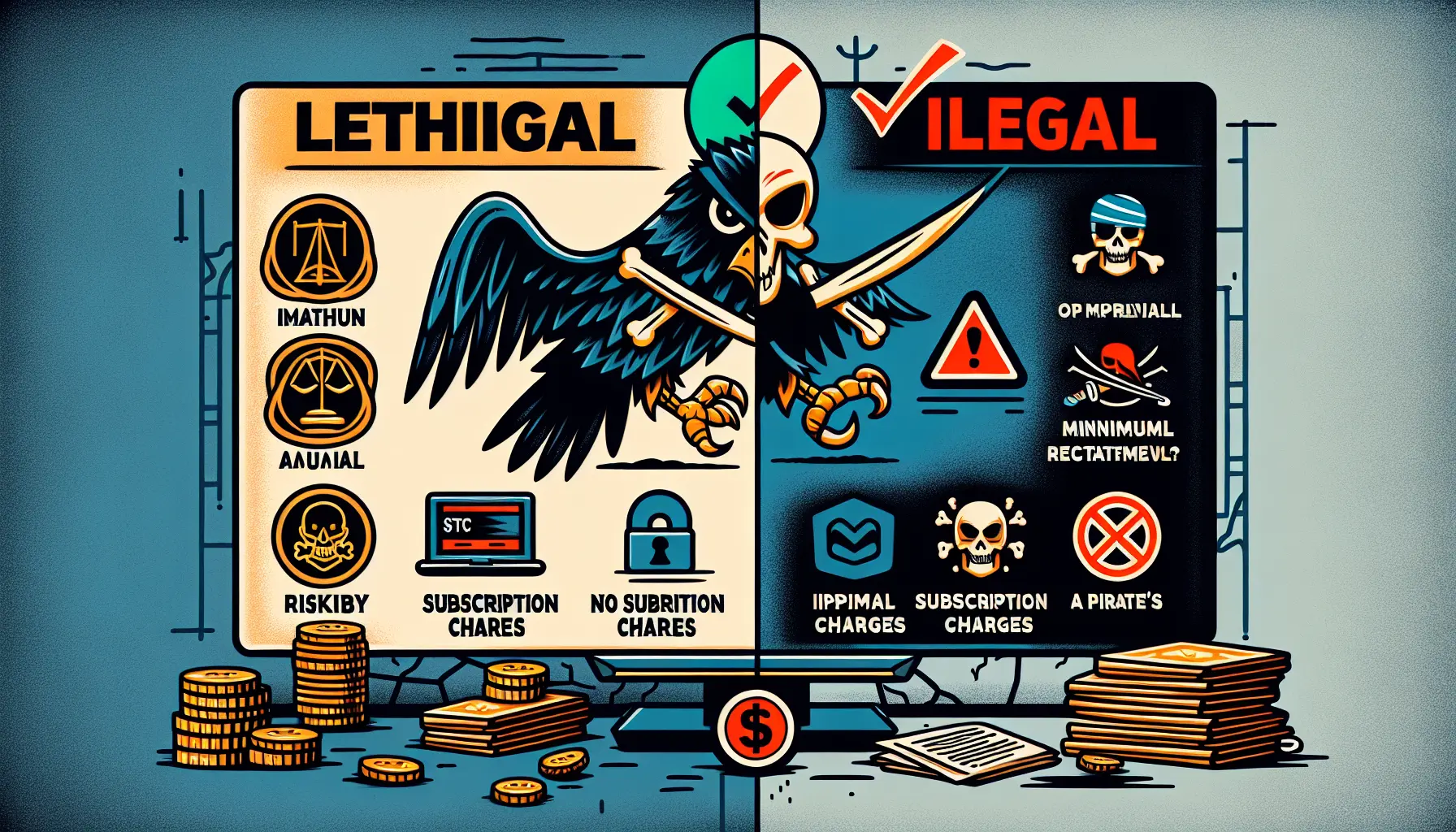
Estimated reading time: 8 minutes
Key Takeaways
- IPTV Legality: IPTV technology is legal, but legality depends on content acquisition and distribution methods.
- Research Providers: Always verify IPTV providers for proper licensing to avoid legal issues.
- Red Flags: Look for warning signs that may indicate illegal IPTV services before subscribing.
- Be Informed: Keep updated on IPTV regulations in your country to ensure compliance.
- Security Risks: Unauthorized services can expose users to significant security threats.
Table of Contents
- Introduction
- What Exactly is IPTV?
- The Legal Status of IPTV Services
- IPTV Laws in the United States
- IPTV Regulation in the UK
- Spotting Legal vs Illegal IPTV Services
- Protecting Yourself While Using IPTV
- Security Risks of Illegal IPTV
- Finding Legitimate IPTV Services
- Common IPTV Legal Questions Answered
- Making Smart IPTV Choices
- Frequently Asked Questions
Introduction
The surge in IPTV streaming services has left many viewers wondering about their legal standing. Whether you’re considering an IPTV service or already using one, understanding the legal landscape is crucial for making informed decisions about your entertainment choices. For a comprehensive overview, consult our Guide on IPTV Legality.
What Exactly is IPTV?
IPTV delivers television programming and multimedia content through internet protocol networks, offering a modern alternative to traditional cable or satellite TV. Unlike conventional broadcasting, IPTV sends content directly to your devices through managed networks, giving you more control over what you watch and when you watch it.
The technology works by transmitting content from provider servers straight to your viewing devices – smart TVs, computers, or smartphones. For live broadcasts, it uses specific protocols like IGMP, while on-demand content relies on RTSP protocols for smooth delivery.
The Legal Status of IPTV Services
Here’s the straightforward truth: IPTV technology itself is completely legal. The questions about legality arise from how services acquire and distribute their content. Legal IPTV providers secure proper licensing agreements and pay for broadcasting rights. Illegal services skip these essential steps, often offering suspiciously low prices for premium content.
IPTV Laws in the United States
American IPTV services must follow strict copyright laws and obtain proper broadcasting rights. Legal providers include:
- Comcast Xfinity
- Verizon FiOS
- AT&T U-verse
Using unauthorized services can result in serious consequences, including lawsuits and monetary penalties. The FBI actively investigates illegal IPTV operations, targeting both providers and users.
IPTV Regulation in the UK
British law governs IPTV through the Copyright, Designs and Patents Act 1988. Legal options include:
- Sky Go
- BT TV
- NOW TV
UK authorities take illegal streaming seriously, with penalties ranging from fines to imprisonment for severe cases.
Spotting Legal vs Illegal IPTV Services
Look for these red flags that might indicate an illegal service:
- Unusually low subscription costs
- Promises of unlimited premium channels
- Missing business information
- No clear licensing documentation
Protecting Yourself While Using IPTV
To ensure you’re using legal IPTV services:
- Research provider credentials thoroughly
- Verify content licensing agreements
- Check for official customer support
- Look for transparent business practices
Security Risks of Illegal IPTV
Beyond legal issues, unauthorized IPTV services often pose significant security threats:
- Malware infection risks
- Personal data theft
- Financial information compromise
- Unreliable service quality
Finding Legitimate IPTV Services
To locate legal IPTV options:
- Contact established telecommunications companies
- Consult regulatory bodies like the FCC or Ofcom
- Review official content distributor lists
- Verify provider licenses
Common IPTV Legal Questions Answered
Q: Can I get in trouble for using illegal IPTV?
A: Yes, users can face fines and legal action for accessing unauthorized content.
Q: Why are some IPTV services so cheap?
A: Extremely low prices often indicate illegal operations avoiding licensing fees.
Q: How can I verify if my IPTV service is legal?
A: Check for proper licensing, business registration, and official partnerships with content owners.
Making Smart IPTV Choices
The key to safe IPTV usage lies in choosing legitimate services. While illegal options might seem attractive due to lower costs, the risks far outweigh any potential savings. Stick with authorized providers to enjoy quality entertainment without legal concerns.
Remember to regularly review your IPTV service’s legitimacy and stay informed about changes in broadcasting regulations. This proactive approach helps ensure your streaming activities remain on the right side of the law.
Frequently Asked Questions
What is IPTV?
IPTV (Internet Protocol Television) is a system where television services are delivered using the Internet Protocol suite instead of traditional terrestrial, satellite signal, and cable television formats.
Is using IPTV illegal?
Using IPTV is legal as long as you’re accessing licensed content from legitimate providers.
How do I know if my IPTV service is legal?
You can verify the legality of your IPTV service by checking if they have proper licensing and are recognized by content distributors.
What are the risks of illegal IPTV?
Using illegal IPTV services can lead to legal consequences, exposure to malware, and potential data theft.
Where can I find legal IPTV services?
Legal IPTV services can usually be found through recognized telecommunications companies or reputable streaming services.



